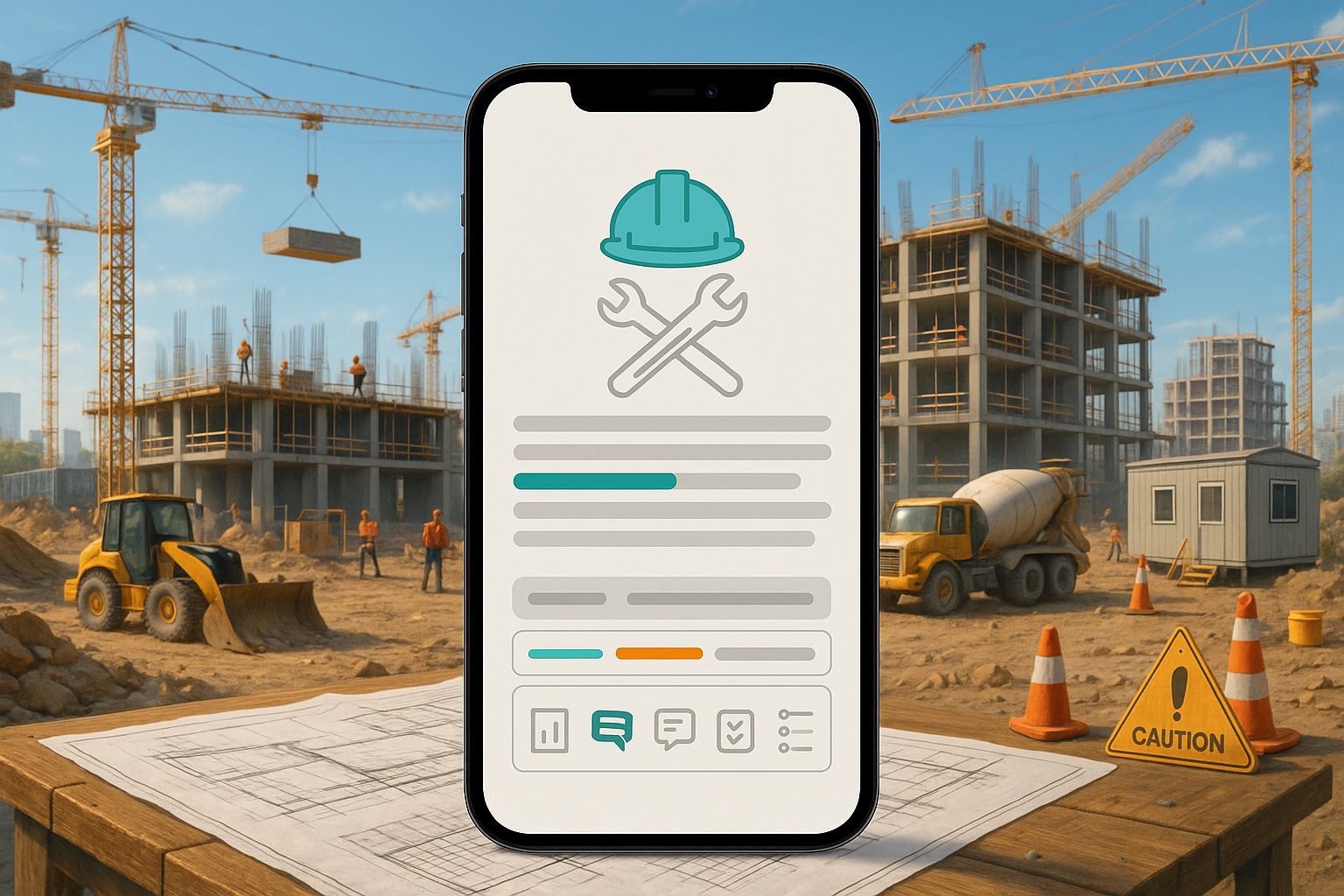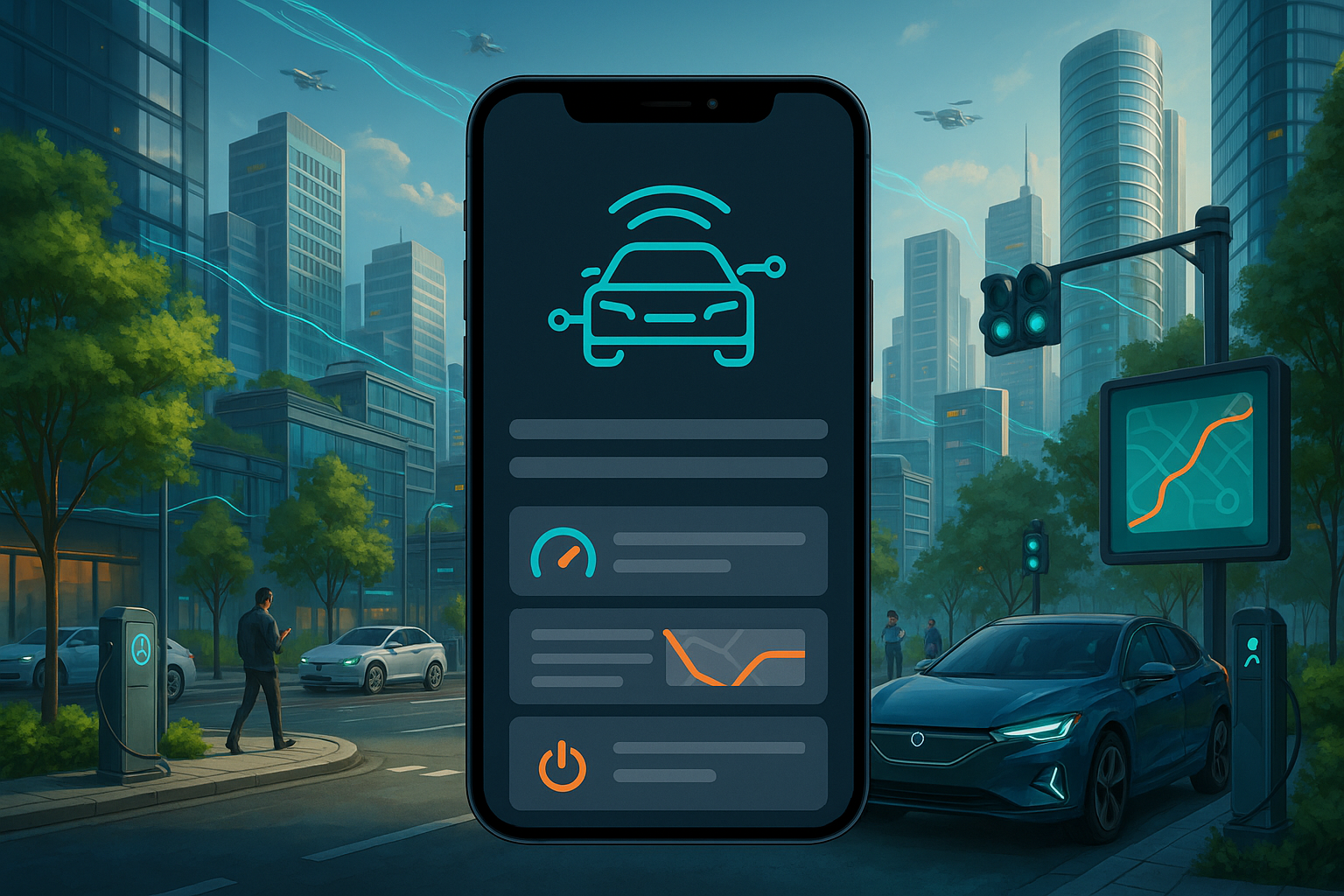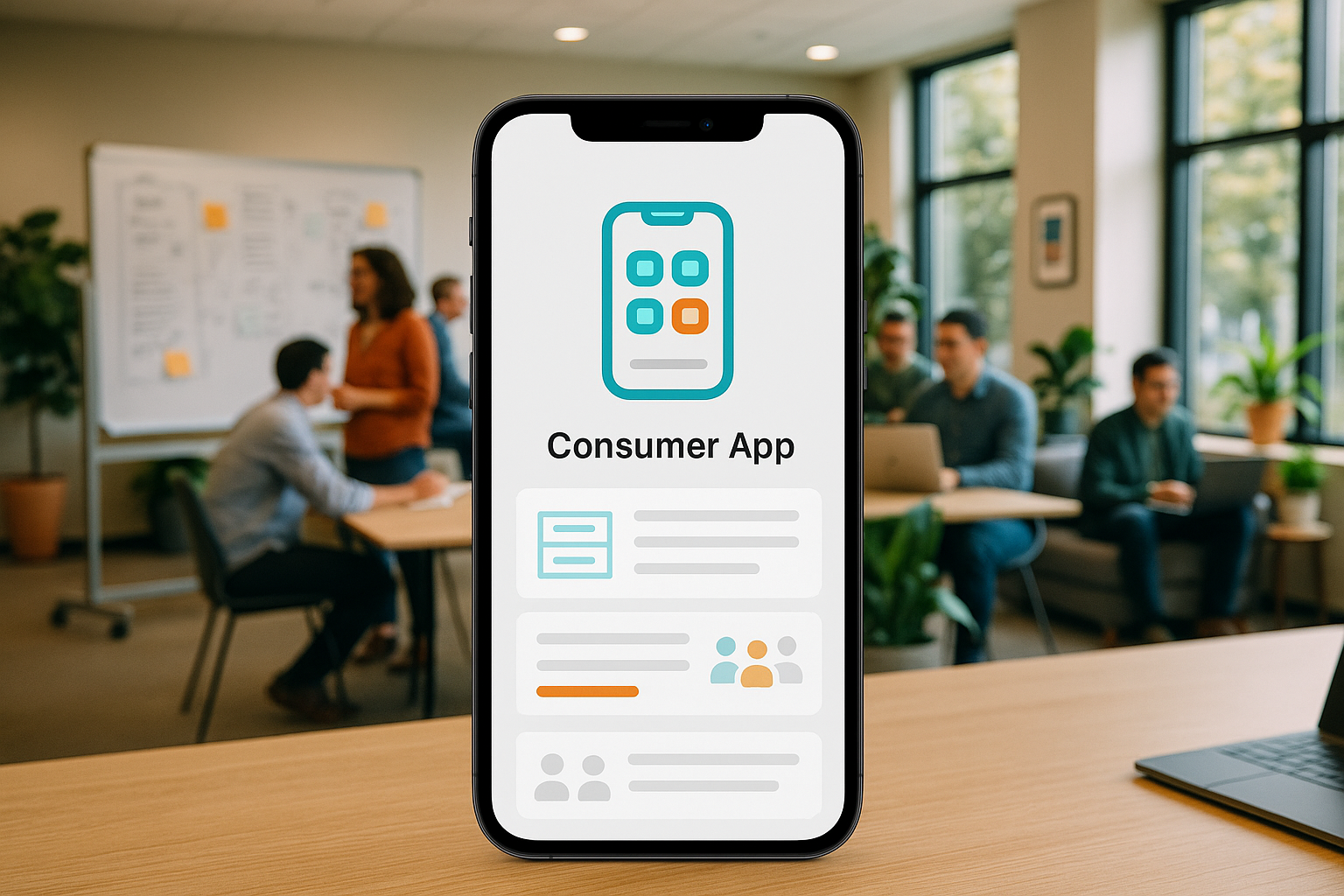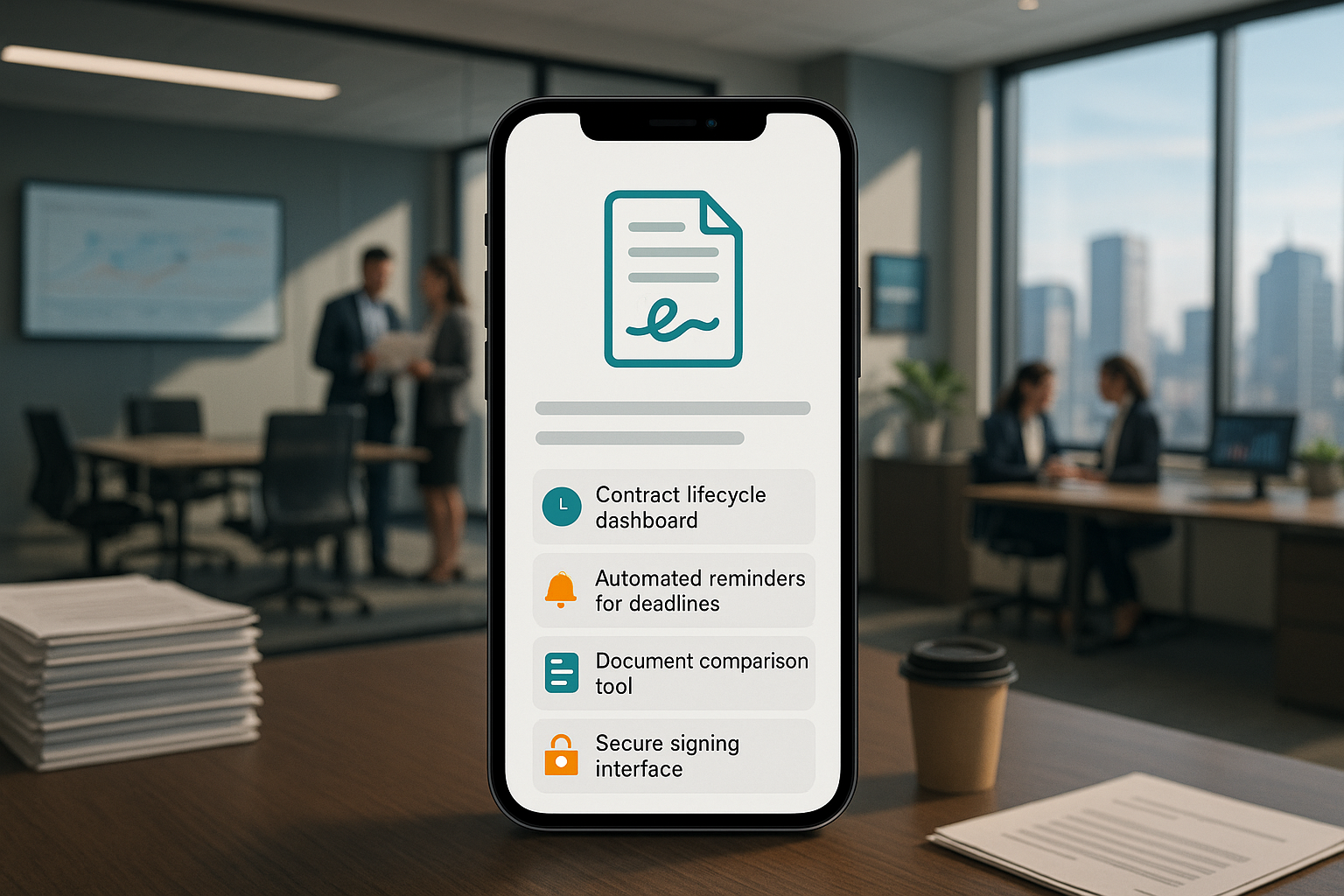Introduction
The construction industry is a complex ecosystem of moving parts, from project managers and subcontractors to suppliers and clients. Successfully orchestrating a project requires meticulous planning, flawless communication, and real-time financial oversight. While spreadsheets and phone calls were once the standard, today’s competitive landscape demands a more sophisticated solution: a custom construction application.
However, embarking on construction app development is a formidable challenge. It requires more than just coding expertise; it demands a profound understanding of the industry’s unique workflows, regulatory hurdles, and on-the-ground realities. Many firms find their in-house teams ill-equipped to handle such a specialized undertaking, leading to budget overruns, delayed timelines, and a final product that fails to meet critical needs.
This article serves as a comprehensive guide to navigating the world of construction app development. We will explore what defines a true construction app, dissect the reasons why in-house development is so difficult, examine the various types of apps on the market, provide a detailed cost analysis for building one from the ground up, and identify the leading companies in the space.
As a top US AI-powered app development firm with over 20 years of experience, we at MetaCTO specialize in transforming complex ideas into powerful, market-ready mobile applications. We understand the intricacies of building specialized software and are here to guide you through every step, from validating your concept with a 90-day MVP to scaling a fully-featured platform. Let’s delve into what it takes to build a construction app that truly works.
What is a Construction App?
At first glance, a construction app might seem synonymous with any project management tool. However, a critical distinction exists between general-purpose software and platforms built specifically for the construction industry. Understanding this difference is the first step toward appreciating the value and complexity of a true construction application.
General Project Management Apps, such as those used in marketing, IT, or HR, are designed for broad applicability. They typically offer a core set of features that can be adapted to various workflows:
- Task Management: Creating, assigning, and tracking tasks.
- Gantt Charts: Visualizing project timelines and dependencies.
- Document Management: Storing and sharing project-related files.
While these tools are flexible, they lack the specialized functionality essential for managing a construction project. Their flexible systems for task management and team coordination are useful, but they fall short because they are missing the financial and logistical tools that are the lifeblood of the construction business. General apps tend to lack key workflows for estimating, progress billing, and managing inventory or purchase orders. Critical functions like job costing, detailed construction scheduling, and industry-specific timesheets are simply not part of their DNA.
Construction Project Management Apps, in contrast, are purpose-built from the ground up to address the unique challenges of the construction industry. They incorporate the standard features of task and document management but layer on a suite of indispensable tools tailored to the trade:
- Estimating: Building detailed project bids by itemizing tasks, materials, and equipment.
- Project Scheduling: Creating and managing complex timelines specific to construction phases.
- Time Tracking: Logging labor hours accurately for payroll and job costing.
- Customer Relationship Management (CRM): Managing client interactions, from initial lead to final invoice.
- Job Costing: Tracking actual costs against the budget in real-time.
- Purchase Order Management: Creating, sending, and tracking purchase orders for materials and equipment.
- Progress Billing: Generating applications for payment based on the percentage of work completed.
A platform like ServiceTitan, which specializes in supporting subcontractors, exemplifies this distinction. When a new project is created, it automatically generates a project overview dashboard. From this central hub, a project manager can view high-level project information, track open tasks, and initiate critical actions like generating estimates, purchase orders, and invoices. It provides deep financial insights, including a detailed project audit trail with every RFI, submittal, and note. This level of industry-specific integration is what separates a true construction app from a generic project management tool.
Reasons It Is Difficult to Develop a Construction App In-House
The temptation to build a custom software solution using an internal team can be strong. On the surface, it seems like a way to maintain control and potentially save money. However, developing a construction app is a uniquely complex endeavor, and the path of in-house development is fraught with challenges that can derail even the most well-intentioned projects.
-
Specialized Knowledge is Required Creating robust construction software is not a task for generalist engineers. It demands specialized proficiency in software development combined with a thorough comprehension of the construction sector itself. In-house engineers, while skilled, may lack the specific experience needed to build a platform that can handle the industry’s unique requirements and obstacles. The logic for progress billing, the integration of material pricebooks, and the workflows for change orders are not standard software problems; they are construction-specific challenges that require a developer who understands the domain.
-
Deep Industry Understanding is Non-Negotiable A successful construction app must do more than just execute code; it must seamlessly map to the complex, often chaotic, reality of a construction project. This requires a deep understanding of:
- Stakeholder Dynamics: The intricate web of communication between general contractors, subcontractors, architects, owners, and suppliers.
- Financial Workflows: The nuances of job costing, AIA-style progress billing, retainage, and lien waivers.
-
Regulatory Compliance: Adherence to safety standards like OSHA, building codes, and data security laws.
-
Field Operations: The on-the-ground needs of a crew, including offline access for blueprint viewing, daily log submission, and real-time incident reporting.
An in-house team without this deep-seated industry knowledge will likely build an application that is technically functional but practically useless, creating more friction than it resolves.
- The Need for a Competent Software Partner The facts are clear: building custom construction software effectively often requires assistance from a competent software company. An experienced partner like MetaCTO brings more than just coding ability to the table. We bring a proven process for turning complex requirements into an intuitive and reliable product. With over 120 successful projects launched, we have honed our ability to partner with clients, understand their industry, and translate that understanding into a successful app. Our custom mobile app development service is designed to mitigate the risks of in-house builds by providing the expert guidance and technical horsepower needed to succeed.
Different Types of Construction Apps
The construction software market is not a monolith. Different applications are designed to serve specific niches within the industry, from massive infrastructure projects to solo remodeling contractors. Understanding these categories can help you identify what type of solution best fits your business needs.
-
All-in-One Platforms for Large Contractors: These are comprehensive solutions designed for general contractors, owners, and public agencies managing large-scale projects.
- Procore is a leading example, offering an expansive platform with tools for preconstruction, project management, quality and safety, and construction financials. Its strength lies in its comprehensive nature and its ability to integrate with a wide range of other software.
-
Solutions for Home Builders & Remodelers: These platforms are tailored to the residential construction market.
- Buildertrend is built for home builders, remodelers, and specialty contractors. It combines financial and project management tools with a strong emphasis on customer management, featuring a robust CRM and a customer portal where clients can make selections, approve changes, and track progress.
-
Apps for Specialty & Subcontractors: These apps focus on the specific needs of trades like HVAC, plumbing, and electrical.
- ServiceTitan is a prime example, offering deep functionality for estimating, job costing, and progress billing tailored to mechanical, electrical, and plumbing subcontractors.
- BuildOps is another all-in-one software for commercial service contractors, streamlining operations from scheduling and dispatch to inventory and contract management.
-
Job Site Coordination & Communication Tools: These apps are designed to improve efficiency and communication directly on the job site.
- Fieldwire excels in this area, providing tools for task management, punch lists, inspections, and, most critically, blueprint viewing and versioning. Its mobile app allows crews to access plans, annotate documents, and communicate in real-time, even when offline.
-
Affordable Options for Small to Mid-Sized Firms: For smaller contractors, affordability and ease of use are paramount.
- Contractor Foreman targets this market, offering a comprehensive suite of features—from scheduling and estimates to financial management—with an emphasis on a user-friendly interface and budget-friendly pricing.
-
Specialized Business Management for Design Professionals: Some platforms cater to the unique needs of architects and designers.
- Houzz Pro is tailored for builders, remodelers, and designers, integrating project management and invoicing with powerful marketing tools. Its integration with the broader Houzz platform provides a unique channel for finding and communicating with clients.
Cost Estimate for Developing a Construction App
Building a construction app is a significant investment, with costs varying widely based on the complexity, features, and technology stack. A basic app can start in the tens of thousands, while a sophisticated, enterprise-grade platform can run well into six figures. Below is a detailed breakdown of the potential costs.
High-Level Cost Breakdown
The overall development process can be divided into several key stages, each with its own cost range.
| Development Stage | Estimated Cost |
|---|---|
| UI/UX Design | $8,000 - $20,000 |
| Frontend Development | $20,000 - $50,000 |
| Backend Development | $25,000 - $60,000 |
| Cloud Integration | $10,000 - $25,000 |
| GPS & Mapping | $7,000 - $15,000 |
| Real-time Collaboration | $12,000 - $30,000 |
| Testing & Quality Assurance | $5,000 - $12,000 |
| Launch & Marketing | $10,000 - $30,000 |
A basic app with core features like task management and document storage might land in the $30,000 - $60,000 range. An advanced application incorporating AI-powered risk assessment and IoT equipment tracking can easily exceed $100,000 - $200,000.
Detailed Feature Cost Breakdown
The final price tag is a sum of its parts. The specific features you choose to include will be the primary driver of your total cost.
| Feature Category | Feature | Estimated Cost |
|---|---|---|
| Project Management | Project dashboard (Gantt charts, milestones) | $3,000 - $6,000 |
| Task creation & assignment | $1,000 - $2,000 | |
| Real-time progress tracking | $2,000 - $4,000 | |
| Change order tracking | $2,000 - $3,000 | |
| Subcontractor management | $2,000 - $3,500 | |
| Field Reporting | Daily site logs | $1,500 - $2,500 |
| Photo & video attachments | $1,000 - $2,000 | |
| Time-stamped field notes | $800 - $1,500 | |
| Voice-to-text note-taking | $2,500 - $4,000 | |
| Weather integration for site logs | $1,000 - $2,000 | |
| Bidding & Estimation | Cost estimation tools | $4,000 - $7,000 |
| Takeoff tools | $5,000 - $8,000 | |
| Bid management (submit, track, review) | $3,000 - $5,000 | |
| RFIs & RFPs tracking | $2,000 - $3,500 | |
| Safety & Compliance | Safety checklists | $1,000 - $2,000 |
| OSHA compliance tools | $2,000 - $3,500 | |
| Incident/accident reporting | $2,000 - $3,000 | |
| Digital signatures for audits | $1,500 - $2,500 | |
| Equipment & Materials | Equipment tracking via GPS | $3,500 - $6,000 |
| Inventory levels & reordering alerts | $2,000 - $3,000 | |
| QR/barcode scanner integration | $2,000 - $3,500 | |
| Labor Management | Employee check-in/out (geofenced) | $2,500 - $4,500 |
| Timesheets & shift logs | $1,500 - $2,500 | |
| Labor cost tracking | $1,500 - $2,500 | |
| Payroll integration | $2,500 - $4,000 | |
| Document Management | Digital blueprint viewer | $3,000 - $5,000 |
| Markup & annotation tools | $2,500 - $4,000 | |
| Version control | $2,000 - $3,500 | |
| Secure file storage | $2,000 - $3,500 |
Factors Influencing Overall Cost
Beyond individual features, several strategic decisions will impact your budget:
- Platform: Building for a single platform (iOS or Android) is cheaper. A cross-platform app or Progressive Web App (PWA) costs more but provides wider reach.
- Integrations: Connecting your app to third-party systems like QuickBooks for accounting, Procore for project management, or Dropbox for file storage adds complexity and cost, typically ranging from $1,500 to $6,000 per integration.
- Security: Basic password protection is relatively inexpensive. Advanced features like two-factor authentication ($1,000 - $2,000) or enterprise-grade security with compliance for data laws ($2,000 - $4,000) will increase the cost.
- Advanced Technology: Incorporating cutting-edge technology is a significant investment.
- AI & Machine Learning: $20,000 – $50,000
- Augmented Reality (AR) & Virtual Reality (VR): $30,000 – $70,000
- IoT Integration: $25,000 – $60,000
- Blockchain for Data Security: $40,000 – $80,000
Ongoing Costs
The initial development cost is only part of the financial picture. You must also budget for recurring expenses to keep the app running smoothly.
- Annual Maintenance & Updates: $10,000 - $50,000
- Compliance and Data Security: $15,000 - $40,000
- Monthly Cloud Hosting & Storage: $500 - $5,000
- User Training and Support: $5,000 - $20,000
Building a powerful app is a complex financial undertaking. Our Rapid MVP Development service is designed to help you validate your core idea and test the market with a functional product in just 90 days, keeping initial costs low while you gather essential user feedback.
Top Construction App Development Companies
Selecting the right development partner is arguably the most critical decision you’ll make. While the construction software market has established players, a custom solution requires a partner with deep technical expertise and a collaborative spirit.
1. MetaCTO
At MetaCTO, we specialize in building, growing, and monetizing complex mobile applications. With two decades of app development experience and over 120 successful projects launched, we are uniquely positioned to tackle the challenges of construction app development. We are not just a vendor; we are a technical partner committed to your success.
Our approach is holistic. We handle every step of the process, from initial strategy and design to development, launch, and ongoing growth. Our expertise in AI development allows us to integrate intelligent features like predictive analytics and computer vision, giving your app a competitive edge. We understand that speed to market is crucial, which is why we offer a 90-day MVP service to get your product into the hands of users quickly, allowing you to validate, iterate, and secure funding faster. From day one, we align our technical strategy with your business goals to ensure the final product not only functions flawlessly but also drives profit and increases your company’s valuation.
Other Leading Construction Software Vendors
While we excel at building custom solutions, it’s also important to be aware of the major players who offer off-the-shelf software. In 2023, the top 10 vendors controlled a significant 45.6% of the global construction software market.
| Rank | Vendor | 2023 YoY Revenue Growth | Notes |
|---|---|---|---|
| 1 | Autodesk | 9.2% | Market leader with a 6.9% market share. |
| 2 | Procore | 31.7% | Strong growth, following Autodesk in market position. |
| 3 | Oracle | 3.8% | Offers Aconex, Textura, and PPM Cloud solutions. |
| 4 | Bentley Systems Inc. | 11.8% | Offers SYNCHRO 4D for Building Information Modeling. |
| 5 | Microsoft | 9.8% | Offers Power BI, Teams, and Project Online. |
| 6 | Constellation Software Inc. | 12.5% | Offers BuildTopia and NEWSTAR Homebuilder ERPs. |
| 7 | Trimble | 3.3% | Offers Accubid for estimating and e-Builder for PPM. |
| 8 | Intuit Inc. | 10.0% | Offers QuickBooks Desktop for financials. |
| 9 | Nemetschek Group | 7.8% | A key player in the European market. |
| 10 | Roper Technologies, Inc. | 16.2% | Shows strong growth among the top vendors. |
These companies provide powerful, albeit standardized, platforms. For businesses with unique workflows or a desire for a competitive advantage through proprietary technology, a custom build with an expert partner like MetaCTO is the superior path.
Conclusion
Navigating the landscape of construction app development is a complex but essential journey for any modern construction firm looking to enhance efficiency, improve communication, and boost profitability. We’ve covered the critical distinctions between generic and industry-specific apps, highlighting the specialized features like job costing, progress billing, and detailed estimating that are non-negotiable for the trade. We’ve also dissected the immense challenges and costs of building such a platform, from the need for deep domain knowledge to the granular expenses of each feature.
Building in-house is a risky proposition, often leading to a product that fails to meet the practical demands of a job site. The market offers a range of off-the-shelf solutions, from comprehensive platforms like Procore to niche tools like Fieldwire, but these one-size-fits-all approaches can limit your ability to innovate and optimize your unique processes.
The most effective path forward is to partner with a development expert who can translate your specific needs into a tailored, powerful, and scalable application. At MetaCTO, we bring 20 years of experience, a portfolio of over 120 launched apps, and a mastery of AI and mobile technology to every project. We are more than developers; we are strategic partners dedicated to building your app the right way, from day one.
If you’re ready to build a construction app that gives you a true competitive edge, let’s talk.
Talk with a Construction app development expert at MetaCTO today.






